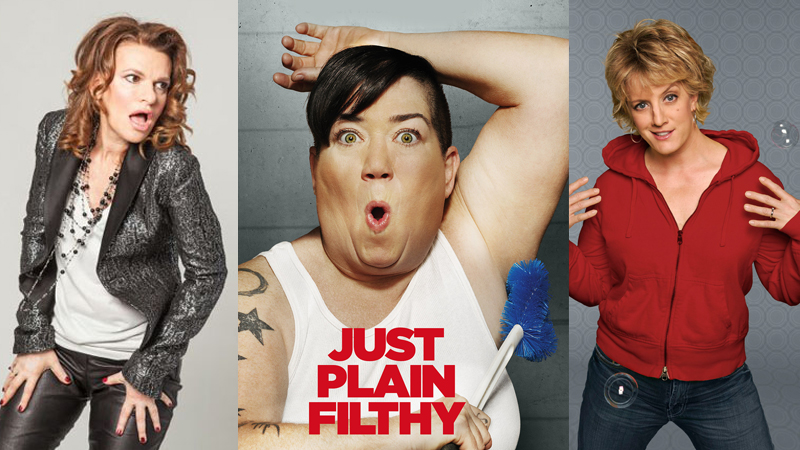By Kelly Anneken
Many people think of Ellen Degeneres as the first openly gay female comic, even though her sexual identity didn’t work its way into her act until two years after her very public coming out party in 1998. Both Rosie O’Donnell and Wanda Sykes are lesbian stand-ups, but neither of them addressed their sexuality until their careers were already well-established. It certainly seems like the path to success for Sapphic funny women is to keep their orientation buttoned up and then announce their LGBT street cred after they’ve landed a sitcom, talk show, or HBO special. However, if you dig a little deeper, you’ll find a bunch of hilarious humorsexuals who were out and proud long before being queer found mainstream acceptance.
In many ways, bisexual comic and jill-of-all-trades Sandra Bernhard is the godmother of comedy’s “queer invasion” of the '80s and '90s. She made a big splash at LA’s Comedy Store in the late 1970s and was a supporting player on the short-lived Richard Pryor Show, but she is best known for her portrayal of the openly gay Nancy Bartlett on the sitcom Roseanne from 1991-97. Starting in 1985, Bernhard began writing and performing one-woman shows that blended her provocative, dramatic jokes with sweeping covers of popular music and fantastic tales of her encounters with Hollywood glitterati (Bernhard is rumored to have had a dalliance with Madonna and even appeared in Queen Madge’s racy film, Truth or Dare). Despite her success across a variety of platforms, the bohemian Berhnard took a DIY approach to recording and distributing her live performances, selling homemade CD-Rs in the lobby after her shows.
Both Judy Gold and Suzanne Westenhoefer tried standup for the first time on a dare. Gold was a music student at Rutgers University when the comedy bug bit in the early 1980s, and the neurotic New Yorker spent the next two decades treading familiar material -- her relationships with her Jewish mother and her spouse, having children of her own -- with a queer twist. Gold won two Emmys for her work as a writer/producer on The Rosie O’Donnell Show and has been twice nominated for The American Comedy Awards’ funniest female comic.


